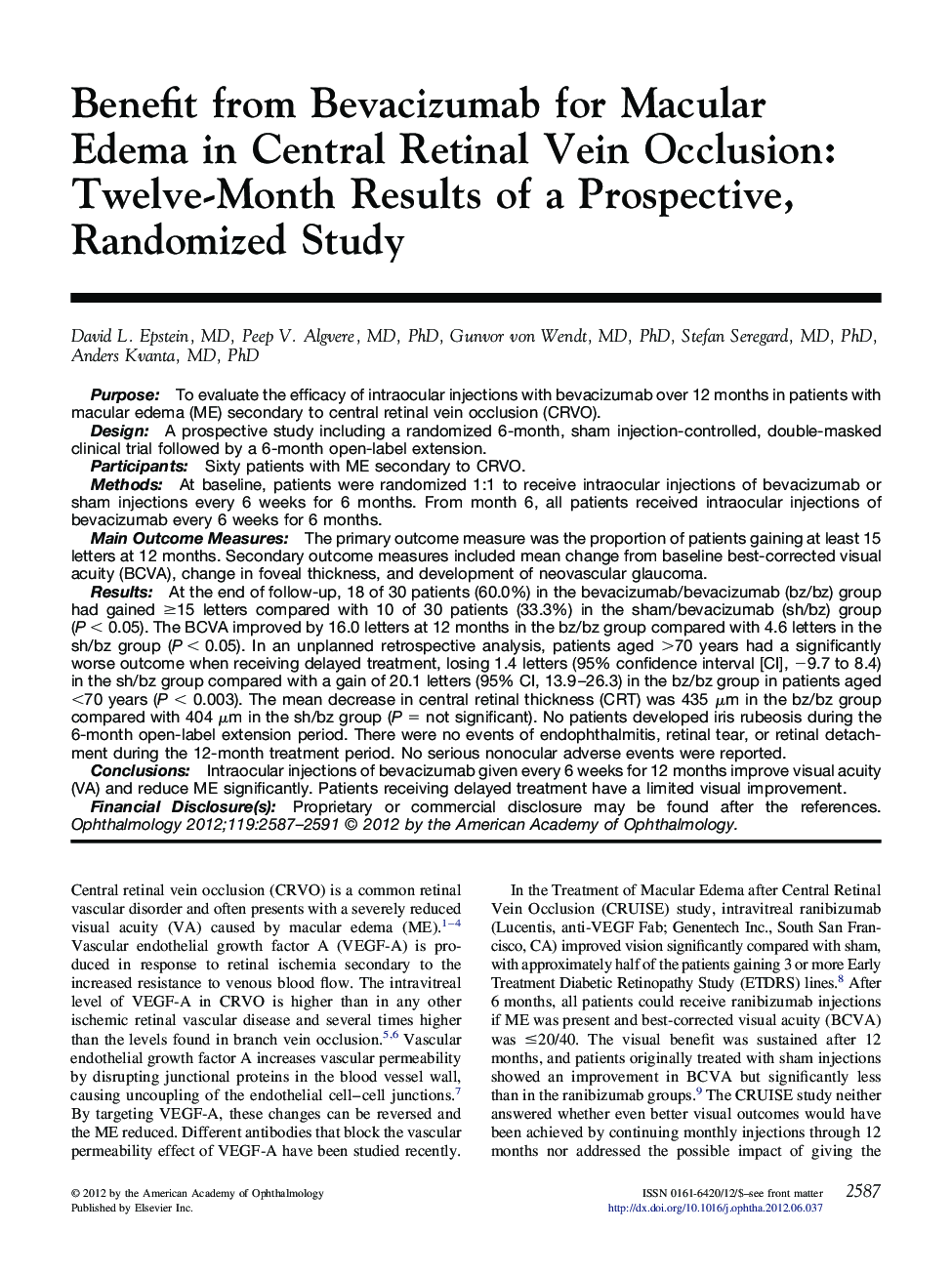| Article ID | Journal | Published Year | Pages | File Type |
|---|---|---|---|---|
| 4027012 | Ophthalmology | 2012 | 5 Pages |
PurposeTo evaluate the efficacy of intraocular injections with bevacizumab over 12 months in patients with macular edema (ME) secondary to central retinal vein occlusion (CRVO).DesignA prospective study including a randomized 6-month, sham injection-controlled, double-masked clinical trial followed by a 6-month open-label extension.ParticipantsSixty patients with ME secondary to CRVO.MethodsAt baseline, patients were randomized 1:1 to receive intraocular injections of bevacizumab or sham injections every 6 weeks for 6 months. From month 6, all patients received intraocular injections of bevacizumab every 6 weeks for 6 months.Main Outcome MeasuresThe primary outcome measure was the proportion of patients gaining at least 15 letters at 12 months. Secondary outcome measures included mean change from baseline best-corrected visual acuity (BCVA), change in foveal thickness, and development of neovascular glaucoma.ResultsAt the end of follow-up, 18 of 30 patients (60.0%) in the bevacizumab/bevacizumab (bz/bz) group had gained ≥15 letters compared with 10 of 30 patients (33.3%) in the sham/bevacizumab (sh/bz) group (P < 0.05). The BCVA improved by 16.0 letters at 12 months in the bz/bz group compared with 4.6 letters in the sh/bz group (P < 0.05). In an unplanned retrospective analysis, patients aged >70 years had a significantly worse outcome when receiving delayed treatment, losing 1.4 letters (95% confidence interval [CI], −9.7 to 8.4) in the sh/bz group compared with a gain of 20.1 letters (95% CI, 13.9–26.3) in the bz/bz group in patients aged <70 years (P < 0.003). The mean decrease in central retinal thickness (CRT) was 435 μm in the bz/bz group compared with 404 μm in the sh/bz group (P = not significant). No patients developed iris rubeosis during the 6-month open-label extension period. There were no events of endophthalmitis, retinal tear, or retinal detachment during the 12-month treatment period. No serious nonocular adverse events were reported.ConclusionsIntraocular injections of bevacizumab given every 6 weeks for 12 months improve visual acuity (VA) and reduce ME significantly. Patients receiving delayed treatment have a limited visual improvement.Financial Disclosure(s)Proprietary or commercial disclosure may be found after the references.
